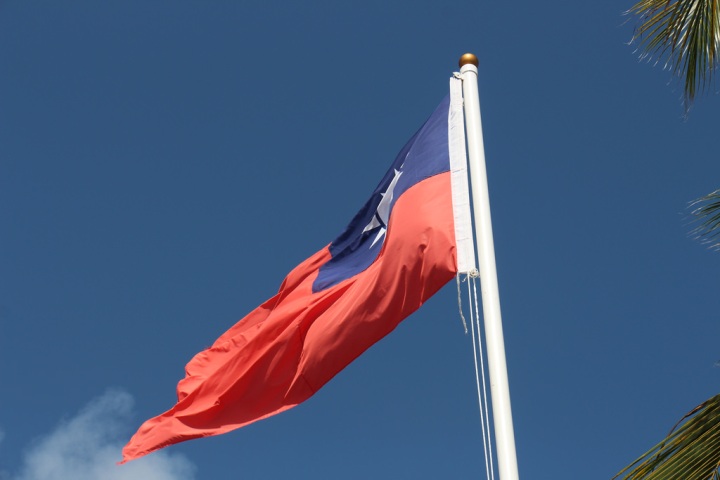China meddling allegations roil Taiwan election campaign

- Country:
- United States
New allegations Beijing tried to infiltrate Taiwan's democracy roiled election campaigning on the island this weekend, with President Tsai Ing-wen's main opponent saying would drop out if he had taken money from China's Communist Party.
A Chinese defector, named as Wang "William" Liqiang by Australian media, gave a sworn statement to the Australian Security Intelligence Organisation, or ASIO, about Beijing's efforts to influence politics in Taiwan, Hong Kong, and Australia. In particular, Wang said he helped guide positive media attention toward certain Taiwanese politicians, including Tsai's top challenger, Han Kuo-yu from the China-friendly Kuomintang party. China, in a late-night statement on Saturday, said Wang is a convicted fraudster who traveled on fake documents.
Taiwan, claimed by China as its sacred territory to be brought under Beijing's control by force if needed, is already on high alert for Chinese attempts to sway presidential and legislative elections scheduled for Jan. 11, whether through disinformation campaigns or military intimidation. The details about what China is suspected of doing in Taiwan quickly provoked a strong reaction from both Han and his party and Tsai and her ruling Democratic Progressive Party (DPP), which supports Taiwan's formal independence, a red line for Beijing.
Speaking on a campaign stop in eastern Taiwan on Saturday, Tsai said China's "shadow" was becoming more and more obvious. Taiwan must not let China destroy its democratic values, she added.
DPP Chairman Cho Jung-tai, writing on his Facebook page, said the Kuomintang was teaming up with the Chinese Communist Party against Taiwan and urged people to use their vote wisely. "Will one ballot decide whether Taiwan wants to go into totalitarian China with the Kuomintang?" Cho wrote.
The Kuomintang called the reports in the Australian media "quite sensational", adding it hoped the government did not use this to "play the fear of the communist's card". Han told reporters he had doubts about what the defector was claiming, asking how the Kuomintang lost the last presidential election in 2016 if China really was swaying elections.
If he had taken money from China's Communist Party, Han vowed to resign from his post as mayor of the southern city of Kaohsiung, to which he was elected a year ago. "In this year's presidential election, if Han Kuo-yu has taken even one cent, he will immediately drop out of the race," Han told reporters, adding he needed more information.
"Can Mr. Wang please come directly to Taiwan, and not hide overseas." Taiwan's government says it is investigating Wang's claims and is asking Australia to provide further information.
Late Saturday, DPP legislative whip Ker Chien-ming said they would make a renewed push for anti-infiltration legislation this week in light of the Australian reports. Chiang Kai-shek and his Kuomintang fled to Taiwan in 1949 after losing a civil war with the Chinese Communist Party.
While no peace treaty has ever been signed, Kuomintang delegations these days visit China regularly. Han met the head of China's Taiwan Affairs Office in the southern Chinese city of Shenzhen in March.
(This story has not been edited by Devdiscourse staff and is auto-generated from a syndicated feed.)
ALSO READ
Tragic Hong Kong building fire claims the lives of at least 4, leaving 12 injured
Fire in Hong Kong's busy Kowloon kills five
Hong Kong police say a building fire has killed at least four people and injured 12, reports AP.
Fire in packed Hong Kong building kills five,dozens in hospital
Tragedy strikes Hong Kong as fire claims lives of 5 and injures 27 in residential building










